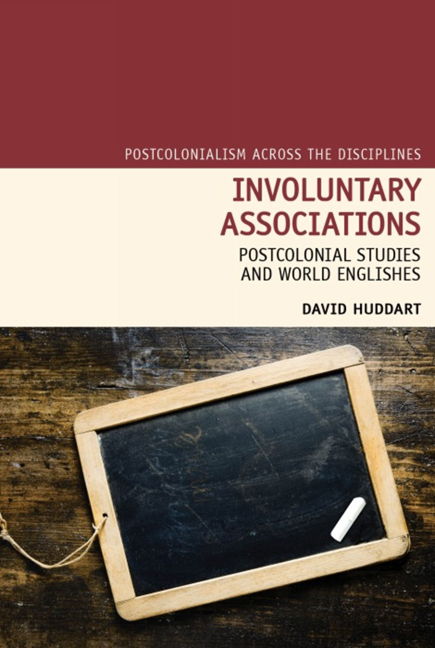Book contents
- Frontmatter
- Dedication
- Acknowledgements
- Contents
- Introduction
- 1 Involuntary Associations: ‘Postcolonial Studies’ and ‘World Englishes’
- 2 Grammars of Living Break their Tense: World Englishes and Cultural Translation
- 3 English in the Conversation of Mankind: World Englishes and Global Citizenship
- 4 Declarations of Linguistic Independence: The Postcolonial Dictionary
- 5 Writing after the End of Empire: Composition, Community, and Creativity
- 6 Slow Reading: The Opacity of World Literatures
- Conclusion: English Remains, Englishes Remain
- Bibliography
- Index
5 - Writing after the End of Empire: Composition, Community, and Creativity
- Frontmatter
- Dedication
- Acknowledgements
- Contents
- Introduction
- 1 Involuntary Associations: ‘Postcolonial Studies’ and ‘World Englishes’
- 2 Grammars of Living Break their Tense: World Englishes and Cultural Translation
- 3 English in the Conversation of Mankind: World Englishes and Global Citizenship
- 4 Declarations of Linguistic Independence: The Postcolonial Dictionary
- 5 Writing after the End of Empire: Composition, Community, and Creativity
- 6 Slow Reading: The Opacity of World Literatures
- Conclusion: English Remains, Englishes Remain
- Bibliography
- Index
Summary
Suppose we come across someone who looks to us subordinated and oppressed but who does not give us any signs of being in that state, at least signs that we would recognize?
Dipesh Chakrabarty, ‘A Correspondence on Provincializing Europe’Whoever teaches without emancipating stultifies. And whoever emancipates doesn't have to worry about what the emancipated person learns. He will learn what he wants, nothing maybe.
Jacques Rancière, The Ignorant SchoolmasterIntroduction
It is arguable that cultural studies as a discipline has both broadened the scope of literary studies and simultaneously placed its privilege in question. Nonetheless, the study of World Englishes, despite its institutional location in linguistics, continues to give a certain privilege to literary creativity, elevating this creativity in the classroom and in research. As evidence of this continued privilege, recent issues of key journals such as World Englishes, and also newly established programmes in relevant institutions (for example, the City University of Hong Kong's MFA in Creative Writing, launched in 2010), give emphasis to creative writing in World Englishes. In fact, there are even efforts to transform aspects of composition along lines broadly influenced by this emphasis, and if those efforts have begun in the North American context they will perhaps flourish even more readily in the numerous contexts of World Englishes. Indeed, this continued emphasis has intuitive plausibility, with literature seen as the natural focus for the true linguistic innovation characteristic of an owned and localized variety of English. Indeed, in an obvious example such as Indian English, its historical depth is partly exemplified by its long literary tradition, including English language writing's acknowledgement by the Sahitya Akademi. Many of the categories of cultural studies might themselves play into this continued privilege, deriving as they appear to do from literary theories (which were, perhaps, themselves more often than not adaptations from varieties of linguistics). And, after all, in the study of World Englishes we are focusing on linguistic change, so what could seem more natural than to privilege literature? Perhaps what cultural studies can offer us when we focus on World Englishes is a series of corrective perspectives that help us understand quite why these Englishes are to a great extent not understood as continued forms of linguistic imperialism.
- Type
- Chapter
- Information
- Involuntary AssociationsPostcolonial Studies and World Englishes, pp. 94 - 115Publisher: Liverpool University PressPrint publication year: 2014



